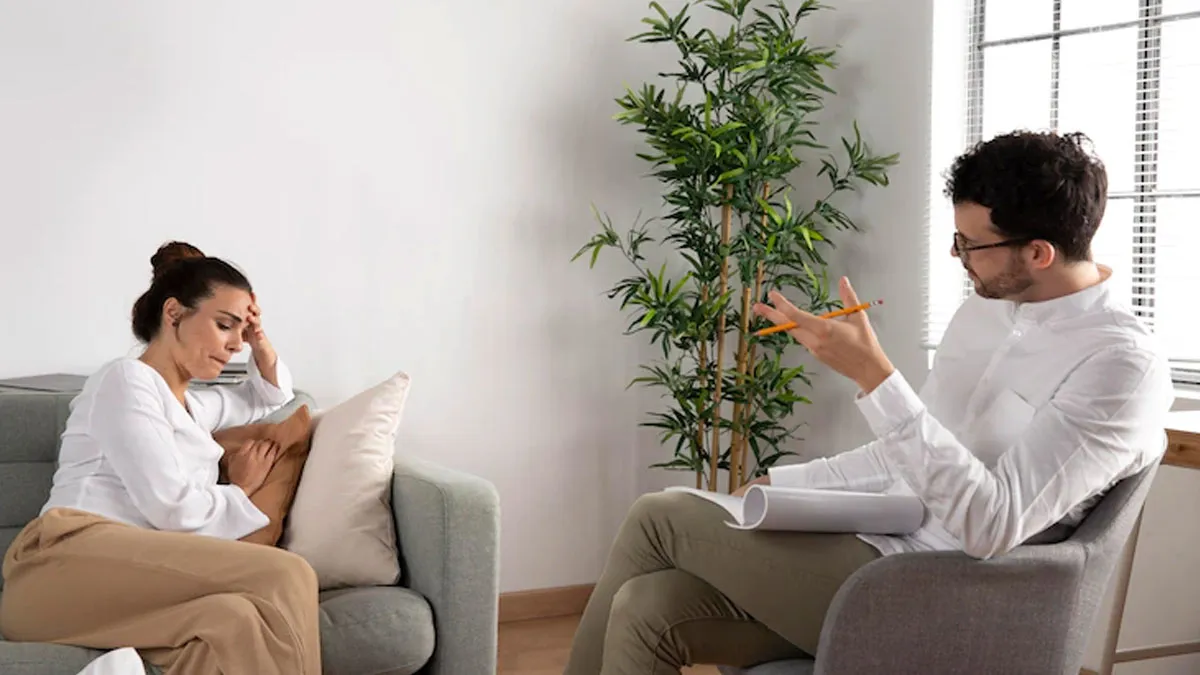
Therapy is a transformative journey for anyone dealing with mental turmoil. It provides guidance, healing, and the tools to navigate life’s challenges. However, just like in any relationship, there may come a time when you and your therapist no longer align. What once felt like an essential support system may start to feel stagnant or unhelpful. This is a natural part of personal growth, but recognising when it’s time to move on can be tricky.
Table of Content:-
CHECK YOUR
MENTAL HEALTH

Signs That You Have Outgrown Your Therapist
Here are the key signs that you might have outgrown your therapist.
1. You Feel Stuck in Your Progress
Therapy should be a space where you evolve. If you find yourself repeating the same discussions without meaningful change, it could be a sign that your therapist’s approach is no longer effective for you. Growth requires new challenges and insights, and if those aren’t happening, it may be time to explore a new perspective.
2. Your Sessions Feel Predictable
Initially, therapy can be eye-opening, helping you uncover patterns and gain fresh insights. But if your sessions start feeling like routine check-ins without substantial breakthroughs, you might not be getting the level of engagement and challenge needed for continued growth.

Also Read: Find Out The Skin Benefits Of Sandalwood Beyond Reducing Acne and Ageing Signs
3. You No Longer Feel Challenged
A good therapist encourages you to step outside your comfort zone and confront difficult emotions or behaviours. If your sessions have become more of a casual chat rather than a space for deep self-exploration, your therapist may not be pushing you in the way that you need.
4. You’ve Achieved Your Initial Goals
Sometimes, therapy serves a specific purpose—helping you navigate a breakup, cope with anxiety, or build self-confidence. Once those goals are met, it’s okay to acknowledge that you no longer need regular sessions. You might decide to take a break or find a therapist who can guide you in new areas of growth.
5. Your Therapist Doesn’t Adapt to Your Changing Needs
As you evolve, your therapeutic needs might shift. Maybe you started therapy for anxiety but now want to focus on career growth. If your therapist doesn’t adjust their approach to match your new concerns, it may be a sign that another therapist with a different specialisation would be more beneficial.

6. You Feel Unheard or Misunderstood
A strong therapeutic relationship relies on feeling seen and understood. If your therapist dismisses your concerns, doesn’t remember key details from past sessions, or seems disengaged, your progress may be hindered. Feeling safe and validated is crucial to effective therapy.
Also Read: Find Out The Skin Benefits Of Sandalwood Beyond Reducing Acne and Ageing Signs
7. You’re Interested in a Different Therapeutic Approach
Therapy is not one-size-fits-all. You may begin with cognitive-behavioral therapy (CBT) but later become interested in approaches like somatic therapy, psychodynamic therapy, or EMDR. If your therapist doesn’t offer the approach you feel would be most helpful, it’s worth exploring other options.
8. You Dread or Feel Indifferent About Sessions
If you once looked forward to therapy but now feel neutral or even resistant about attending, it’s a red flag. Therapy should be something you engage in willingly and find value in. If it no longer feels beneficial, it’s worth reevaluating.
Bottomline
If any of these signs resonate with you, it doesn’t mean therapy has failed—it means you’re growing! Have an honest conversation with your therapist about your feelings. They may offer adjustments to better support you, or they might even recommend a colleague who fits your evolving needs.
Outgrowing a therapist is a sign of progress. Finding the right fit for your next stage of growth will ensure that therapy continues to be a powerful tool in your life. Remember, your well-being comes first, and seeking the right support is an empowering step in your journey.
Also watch this video
Read Next
Dealing With Office Burnout? How Human Resource Can To Help Employees Stay Motivated At Work
How we keep this article up to date:
We work with experts and keep a close eye on the latest in health and wellness. Whenever there is a new research or helpful information, we update our articles with accurate and useful advice.
Current Version